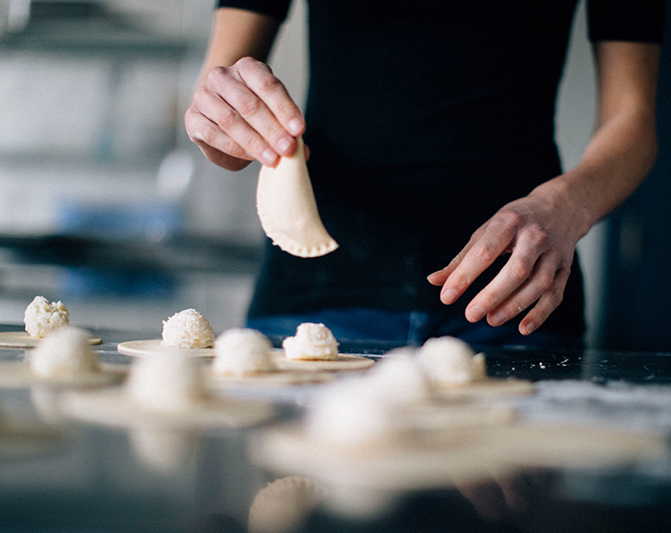The freezer in Vanessa and Casey White’s childhood home was always stocked with pierogi. Their grandfather owned a Polish deli and they grew up in a family that took pride in its Polish heritage. So having the savory dumplings always on hand was just the way things were.
Then the two girls left home, heading to college in the Boston area—Vanessa to Tufts University, Casey a few years later to Bentley University—and discovered that their staple food was not so common among their classmates, many of whom were intrigued by the Whites’ pierogi.
“We were confused,” Casey says.
“We just thought it was completely normal,” Vanessa adds.
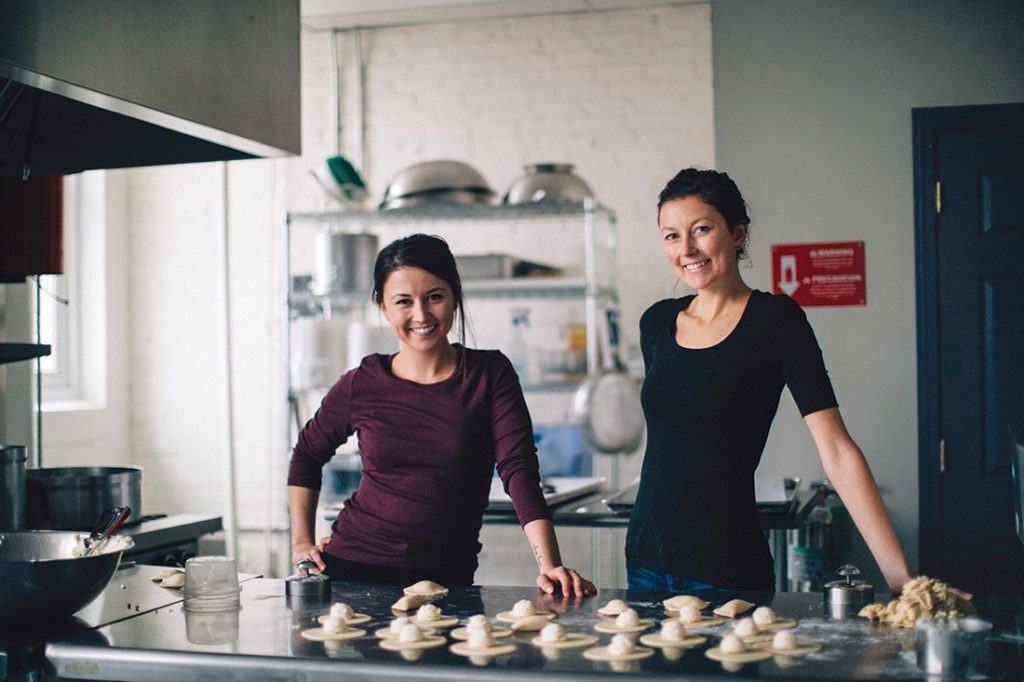
This revelation got the sisters thinking there might be a market for a handmade pierogi company in the area. And that initial brainstorm eventually turned into the foundation of Jaju Pierogi, a growing, acclaimed company that now turns out 25,000 filled dumplings a week, for distribution to about 150 stores throughout the Northeast.
“I don’t think we would ever have envisioned it would become what it has,” Vanessa says.
The pair first decided to test out the business idea in 2015. Both had graduated college and joined the corporate world. Vanessa, who studied international relations, was working in operations for a start-up company, and Casey had a position at a consulting firm.
But the concept of a pierogi business never quite disappeared, so one day they headed to their grandfather’s deli, now run by one of their uncles, and dug up his old, handwritten pierogi recipes. At Vanessa’s kitchen table, they started making their own pierogi. They’d share their work with friends, who would offer feedback on the product. Then they’d tinker with the recipe and start the process over again.
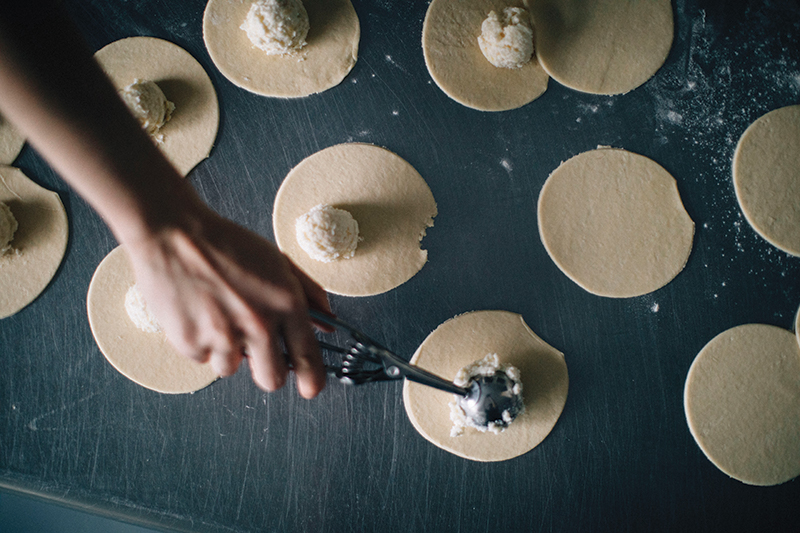
Eventually they found the winning recipe and started production, borrowing commercial-grade kitchen space from a butcher in Beverly and chose the company name to honor their grandfather, who they called “Jaju,” an Americanized version of the Polish word for grandfather. The sisters started selling their wares at farmers’ markets and pop-up events, where the pierogi were an immediate success.
“At first I thought only that Polish people would be attracted to our product,” Casey says. “But no, dumplings are dumplings. They’re comfort food.”
As the business grew, they moved to a production facility in Gloucester, sharing space with another food start-up. But it was soon clear that each company needed its own facilities. The Whites then built out their own commercial kitchen, renovating a space in a 19th-century factory in Lynn. They moved in May 2018. They also made the switch to using a machine to assemble the pierogi; until that point, they had been making 8,000 pierogi by hand each week.
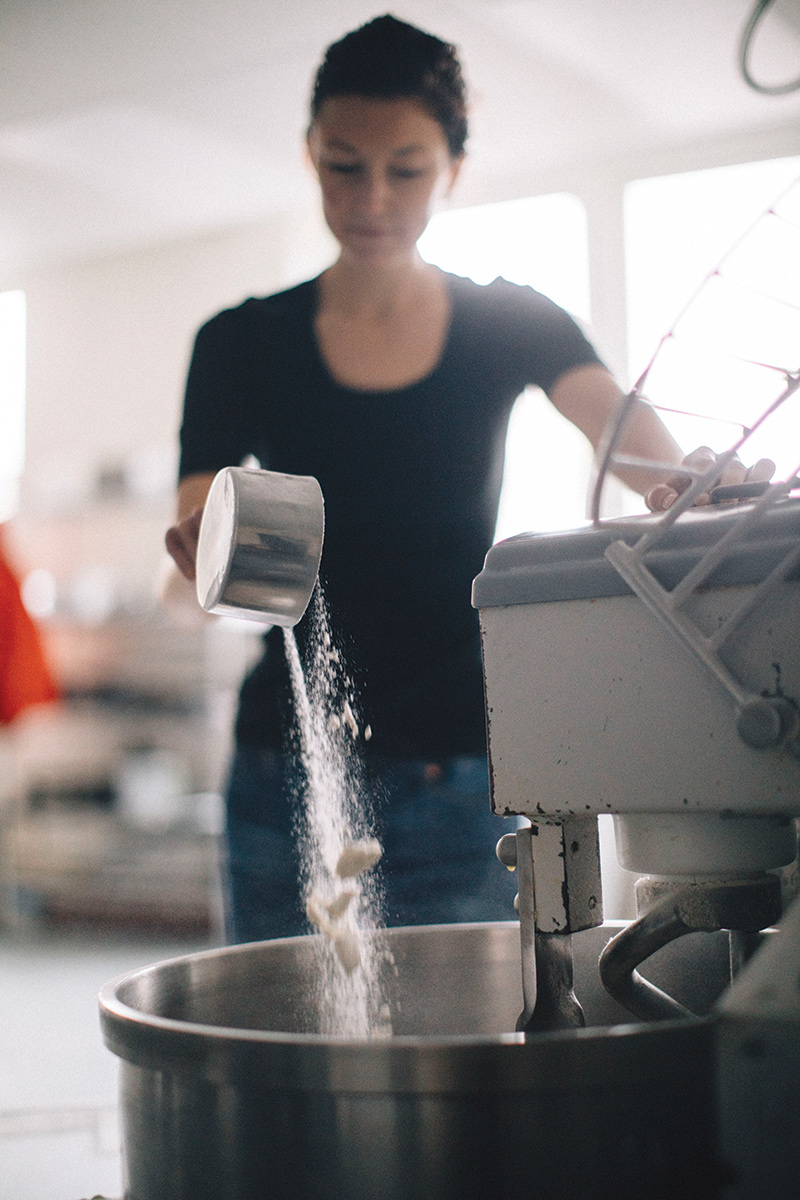
Though they have experimented with some unusual flavors and monthly specials, the sisters have now settled into a lineup of five flavors, a mix of the classic and the creative: potato and cheese, sweet potato and caramelized onion, cabbage and mushroom, spinach and feta, and jalapeño cheddar.
They suggest preparing them simply: pan-fried, accompanied by sour cream, sauerkraut, and maybe some kielbasa.
“We make things people like, but we don’t like to make them complicated,” Vanessa says.
The coronavirus pandemic has had a huge influence on the company’s sales. As people began avoiding both grocery stores and restaurants, demand for frozen foods soared. Suddenly, distributors were ordering five to six times as many packages of pierogi as they had been.
“We had to learn quickly how to keep up with that,” Casey says. “We were fortunate that we were able to grow throughout COVID-19.”
Now the company is considering a move into another new facility to help it keep up with its growth—and its ambitions. Vanessa and Casey hope to keep scaling up the business, expanding sales nationwide. Achieving this vision will almost certainly mean adding equipment and space.
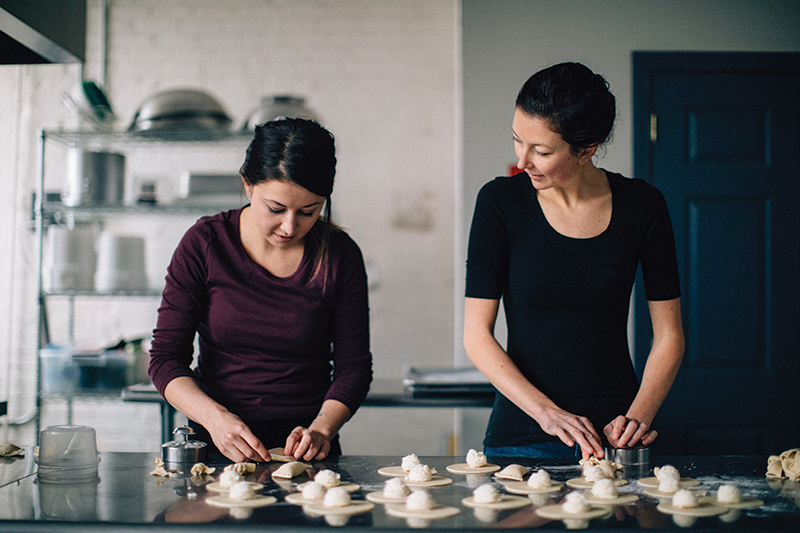
Even as they keep their eyes on national expansions, the sisters still spend plenty of time throughout New England at farmers’ markets or serving up freshly fried pierogi at music festivals and pop-ups in collaboration with breweries.
“We’ve really built our business on that hustling, road show model,” Vanessa says.
So, after five straight years of immersion in pierogi, do the sisters still eat their own product? Absolutely, they say. Vanessa’s favorite is the spinach and feta, and she happily eats damaged pierogi during the production process. Casey, whose preferred pierogi is a kielbasa and red pepper combo that is not currently on the market, still eats the dumplings whenever she works a pop-up event, she says.
“I definitely still crave them every weekend.”

